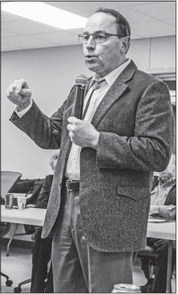Rep. Tiffany explains latest voting record


First term congressman outraged by immigration situation
Seventh District Rep. Tom Tiffany (RMinocqua) on Thursday told officials at a We...


First term congressman outraged by immigration situation
Seventh District Rep. Tom Tiffany (RMinocqua) on Thursday told officials at a We...